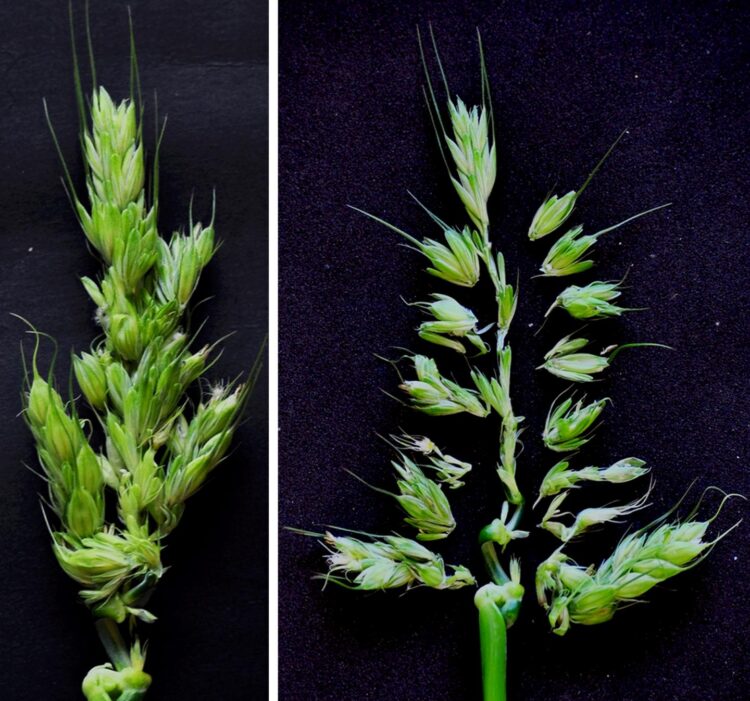An international team of researchers has identified a novel mechanism in barley plants, which could help crop growers achieve high yields as temperatures rise.
With grain production highly sensitive to changing environmental conditions, rising temperatures are known to reduce the number of seeds that can be produced on each plant. One solution is to increase the number of flowers or branches on each ‘spike’, which is the reproductive structure from which grain is harvested.
In a study published in Nature Plants, research led by Professor Dabing Zhang from the University of Adelaide’s Waite Research Institute and Shanghai Jiao Tong University’s Joint Lab for Plant Science and Breeding, explored the possibility of increasing seed production through the reproductive mechanisms in plants that respond to high temperatures.
“Cereal crops such as wheat and barley are worth over $12B to the Australian economy,” said lead author Dr Gang Li with the University of Adelaide’s Waite Research Institute.
“Genes that control the amount of grain produced per plant under higher temperatures are really attractive targets for breeders and researchers, particularly in the face of changing environmental conditions.
“It has long been presumed that environmental cues such as temperature are responsible for the diversity of the biological structures between cereals. However the mechanisms behind the structural changes have been largely unknown, which is why this study is important.”
In the study, Professor Zhang’s team found a novel mechanism by which a barley protein, known as HvMADS1, regulates the number of flowers generated on each spike, in response to high temperatures. The researchers were able to demonstrate that HvMADS1 is critical in maintaining an unbranched barley spike under high ambient temperatures.
Using a highly-efficient genome editing technique, the researchers were able to generate new plants that lack HvMADS1 function, effectively converting an unbranched barley spike into a branched structure, bearing more flowers at high ambient temperatures.
“This could ultimately result in the production of more grain per plant,” said Dr Li.
Co-author Associate Professor Matthew Tucker, Deputy Director of the Waite Research Institute said: “This study reveals a new role of this protein family in responding to thermal change and directing the composition of flowers on a stem.
“With short to medium temperature rises predicted globally, plant scientists and breeders have an enormous challenge ahead of them to generate crop yields needed to feed growing populations in higher temperatures.
“By having a better understanding of the genes underpinning desirable plant traits in response to temperature scientists can offer insights into breeding climate-smart plants to sustain productivity.”
The researchers say this work provides new avenues for crop breeding potential to overcome the traditional compromise between heat tolerance and high yield.
“This collaborative research demonstrates the importance of international partnerships in delivering fundamental scientific breakthroughs, and the value of gene editing strategies in crops, which are routinely used at the Waite Research Institute at the University of Adelaide,” said Associate Professor Tucker.
###
Media Contact
Dr Gang Li
[email protected]
Related Journal Article
http://dx.





